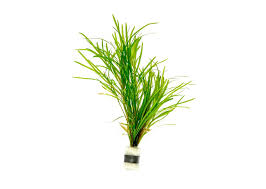1
/
of
1
Midwest Aquarium and Pond Supplier LLC
(151) Potamogeton gayi
(151) Potamogeton gayi
Regular price
$15.00 USD
Regular price
Sale price
$15.00 USD
Shipping calculated at checkout.
Quantity
Couldn't load pickup availability
Potamogeton gayi, also known as slender pondweed, is a delicate and fast-growing aquatic plant native to South America. It is a versatile and relatively easy-to-care-for plant suitable for beginner and experienced aquarists alike. Its soft, grassy leaves create a fine-textured and lush background or midground in the aquarium.
Lighting
- Medium to High: The plant will thrive in medium to high lighting conditions.
- Coloration: The plant's color varies with light intensity. In lower light, it appears golden to light green. In higher light with sufficient nutrients, the leaves can develop reddish-brown or pink tips.
CO2 and nutrients
- CO2: While not strictly necessary, providing a CO2 injection will promote faster, more vigorous growth and more vibrant colors.
- Nutrients: This plant is a root feeder and benefits from a nutrient-rich substrate, such as aqua soil. Supplementing with liquid fertilizers, especially iron, is recommended for the best health and coloration.
Water parameters
- Temperature: Potamogeton gayi is adaptable to a wide range of temperatures, from 4°C to 28°C (40°F to 82°F), making it suitable for both coldwater and tropical tanks. The optimal temperature range is 18–26°C (64–79°F).
- pH: It tolerates a pH range of 6.0 to 8.0.
- Hardness: The plant is highly adaptable to various water hardness levels, from soft to hard water.
Planting and placement
- Initial planting: Plant individual stems directly into the substrate.
- Growth habit: The plant spreads through thin, creeping runners along the substrate.
- Placement: It can be used as a background plant in small to medium-sized aquariums and as a midground plant in larger tanks.
- Grouping: For the best visual effect, plant several stems close together in a cluster to create a dense, grassy bush.
Pruning and propagation
- Regular pruning: Due to its fast growth rate, frequent pruning is needed to prevent it from overgrowing and shading other plants.
- Replanting cuttings: When the plant gets too tall, you can trim the healthy upper portions and replant them in the substrate. This will also encourage the remaining stems to branch out.
- Controlling spread: To control its spread via runners, you can simply pinch them off or transplant them elsewhere in the tank.
Special considerations
- Acclimation: When you first introduce it to your tank, it may take some time to adapt and establish itself.
- Cold water: Its tolerance for cooler temperatures makes it a good option for unheated aquariums.
- Chemical defense: If eaten by fish, the plant may release a bitter chemical as a defense mechanism.
Share
No reviews

